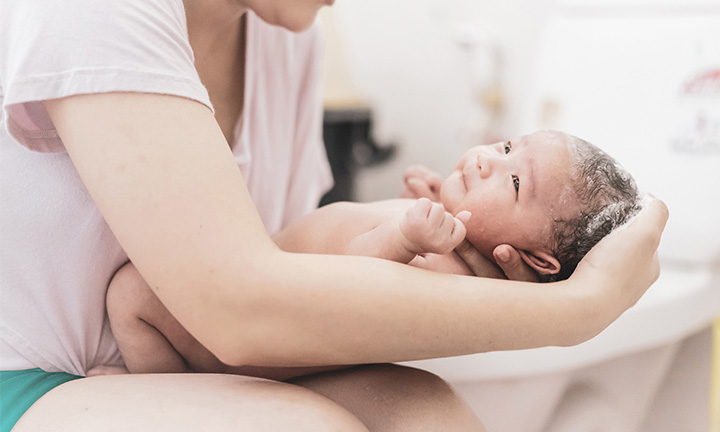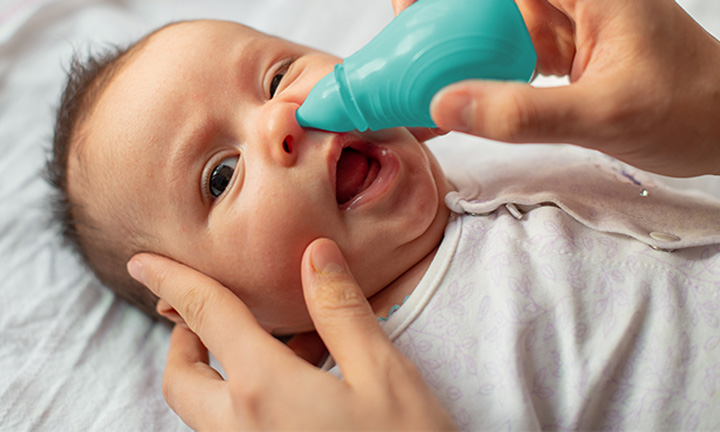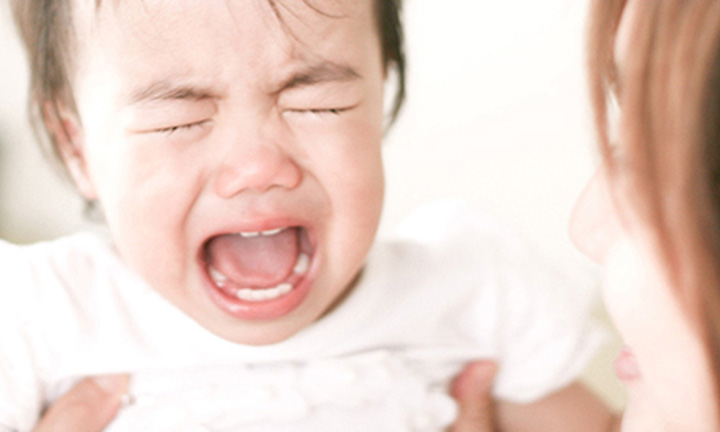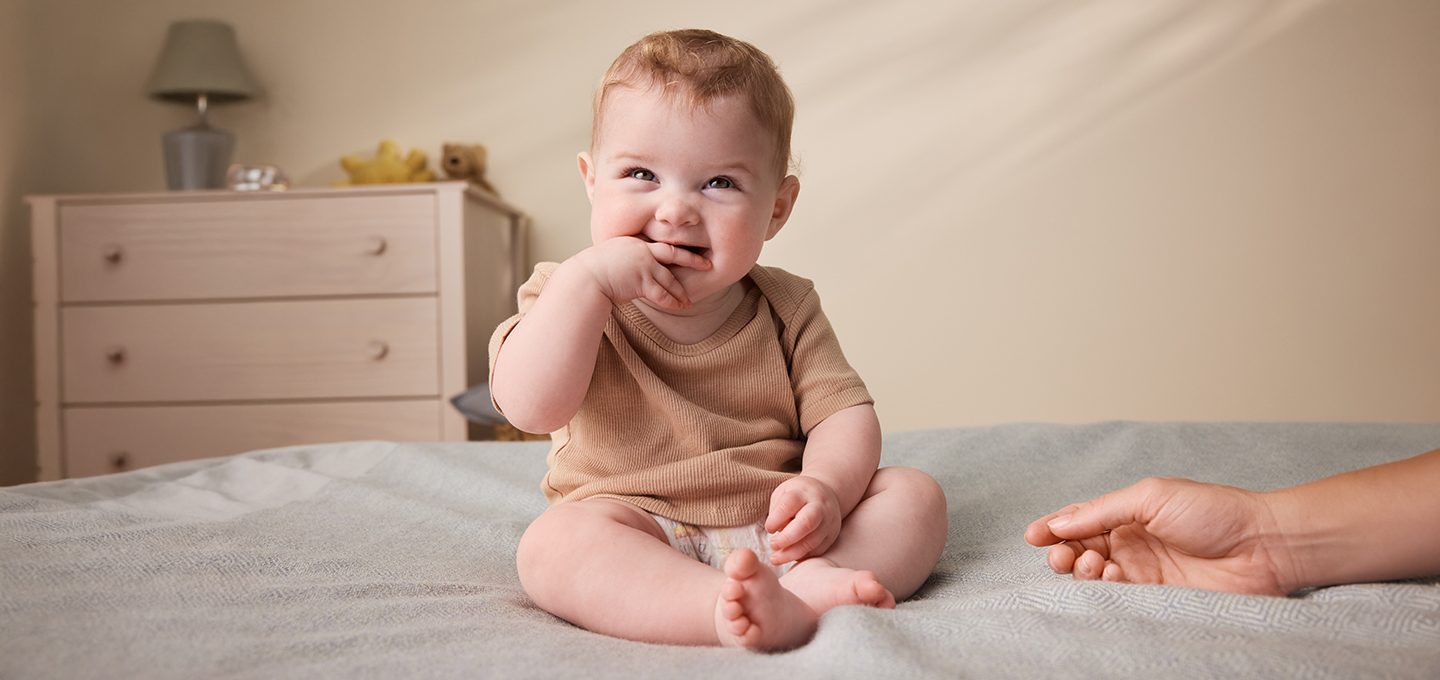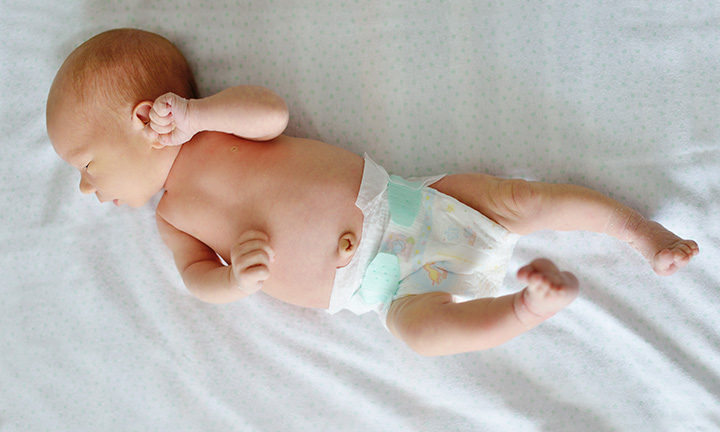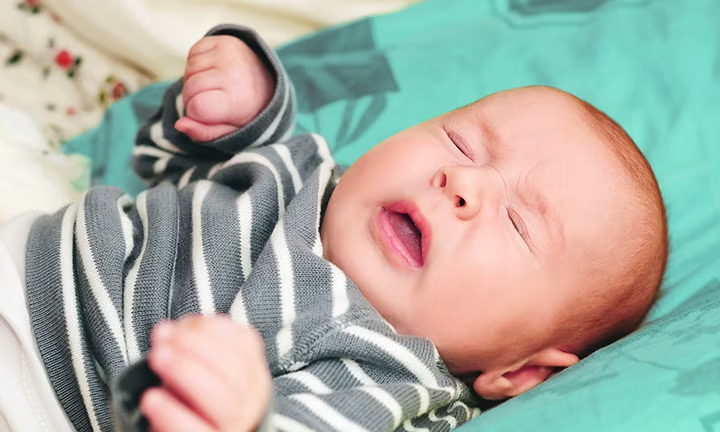
Newborn Sneezing Explained: What’s Normal, What’s Not?
Worried that your newborn is sneezing a lot? You’re not alone, this is one of the most common concerns among new parents. The good news is that sneezing in newborns is usually normal and often just part of healthy development.
Here’s a quick overview to help you understand what’s normal and what to watch for:
Common Reasons for Newborn Sneezing
When Sneezing Might Be a Concern
In most cases, newborn sneezing is nothing to worry about. But if you're unsure or notice other symptoms, it’s always best to check in with your little one’s healthcare provider. Keep reading to learn more about what causes sneezing in newborns, how to recognize signs of illness, and simple ways to keep your baby comfortable.
Is it Normal for Newborns to Sneeze?
Yes, it’s completely normal for newborns to sneeze—sometimes a lot. This is one of the many small behaviors that can surprise you in the early days, especially if your baby sneezes more than you expected. But in most cases, newborn sneezing is a healthy, protective, and involuntary reflex that helps keep their tiny nasal passages clear.
From the moment your baby is born, you’ll likely hear a range of sounds—some expected, others not. These include:
These sounds may seem surprising at first, but they’re all part of your baby’s development. Newborns and sneezing often go hand-in-hand because their nasal passages are so small. Tiny bits of dust, dry air, or even fabric fuzz can trigger a sneeze without it being a sign of an illness.
So, while you might wonder, “Is sneezing normal for newborns?”—the answer is yes. Newborn sneezes are typically just one of the ways your baby’s body responds to its new environment.
If your little one is feeding well, seems comfortable, and isn’t showing signs of congestion or fever, infant sneezing is usually nothing to worry about. However, if you’re ever unsure, don’t hesitate to reach out to your baby’s healthcare provider for reassurance.
Why Do Newborns Sneeze So Much?
If you're asking yourself, “Why does my newborn sneeze so much?” you’re not alone. It’s a common question among parents, especially when sneezing happens frequently or in clusters. The good news is that in most cases, this is entirely normal and not a cause for concern. A newborn’s sneezing is often just one of the ways your baby’s body adapts to the outside world.
As we mentioned earlier, sneezing is one of your baby’s protective reflexes. And unlike other newborn reflexes, such as grasping or stepping, which fade over time, sneezing continues throughout life. It plays an essential role in helping your baby clear the nasal passages of irritants like dust, dry air, or tiny particles.
There are many common (and harmless) reasons why newborns may sneeze. Sneezing helps clear out irritants that may enter the nose—this could include dust, pollen, pet dander, or strong smells. These tiny particles can tickle the sensitive lining inside the nose, prompting a sneeze to force them out.
So, if your newborn sneezes often but otherwise seems content, eats well, and doesn’t have a fever or congestion, it’s likely just part of how their body works. Still, if anything feels off, trust your instincts and consult your baby’s healthcare provider.
Sneezing is usually a normal reflex and part of your baby’s sensory and physical development. If you're curious about how your little one is growing in other areas, check out our Baby Growth Tool to explore key milestones and get insights tailored to your little one’s age.
When Is Newborn Sneezing a Sign of Illness?
As we've covered, newborns' sneezing is often normal and simply part of how babies adjust to their environment. But sometimes, when sneezing in newborns happens alongside other signs, it might point to something more, such as a mild illness.
If you’ve noticed your newborn is coughing and sneezing, it may leave you wondering whether it’s just a reflex or the start of a cold. Occasional coughing and sneezing in infants may still be harmless, but in some cases, it could be related to respiratory infections, environmental allergies, or even the flu.
The good news is that many of these conditions are manageable, and we’ll walk through how to recognize them in the next sections. You’ll learn how to tell the difference between the common cold, flu symptoms, and possible allergic reactions, as well as when it might be time to reach out to your little one’s healthcare provider.
Newborn Sneezing and the Common Cold
Baby immune systems take time to mature, so during the first year of life, your baby is more vulnerable to everyday illnesses like the common cold. It’s typical for babies to experience 6 to 8 colds before turning 1 year old! If your newborn is sneezing and congested, has a runny or stuffy nose, or shows any of the symptoms below, they may have a cold.
If your baby is 3 months old or younger, contact their healthcare provider at the first sign of illness, especially if fever is present. At this age, an infant's coughing and sneezing could quickly turn into something more serious. If your little one is older and doesn't have a high fever, you may not need to call right away—just keep an eye on symptoms and reach out if they worsen or don’t improve within a couple of weeks.
In Summary
If your newborn’s sneezing is accompanied by coughing and a stuffy nose, they may have a common cold, a typical part of babyhood. Remember, most babies will get 6 to 8 colds in their first year, and while they can be uncomfortable, they’re generally not dangerous with proper care.
Newborn Sneezing and the Flu
It can be challenging to avoid the seasonal flu with a newborn, especially during the colder months. This respiratory illness can sometimes cause sneezing in infants, though it's not usually one of the main symptoms. Compared to the common cold, the flu tends to come on more suddenly and may feel more intense, even though most healthy babies, children, and adults may start feeling better within a week or two.
If your newborn is sneezing a lot, it’s probably not the flu, as sneezing isn’t a telltale sign. But if your little one has a high fever, it’s best to contact their healthcare provider as soon as possible. This is especially important for babies under 3 months, as the immune system is still maturing, or if your newborn has any chronic conditions.
In Summary
Infant sneezing is not one of the telltale signs of the flu, but if your newborn has a sudden fever, chills, and a stuffy or runny nose, then it could be the flu. Contact your healthcare provider if your infant spikes a fever, especially if they’re under 3 months old or have any chronic conditions.
Newborn Sneezing and Allergies
While it’s rare for newborns to have true seasonal allergies, they can still be sensitive to certain environmental irritants that may trigger infant sneezing or nasal discomfort. These include dust mites, pet dander, mold, and other airborne particles.
According to experts, seasonal allergies typically do not develop until after age 2, but irritants in the air can still lead to cold-like symptoms in younger babies. This means your baby’s sneezing might be a response to what’s around them, not necessarily an allergic condition.
If your baby’s sneezing or nasal congestion seems persistent or starts to interfere with sleep or feeding, consider discussing it with your baby’s healthcare provider. They can help you figure out if the cause is temporary irritation or something that needs further attention.
In Summary
Although seasonal allergies are uncommon in babies younger than 2, sneezing in newborns may still be triggered by environmental factors like dust or pet dander. If your infant's sneezing and stuffy nose start affecting daily routines, it’s worth reaching out to their healthcare provider for guidance.
When to Call Your Healthcare Provider About Newborn Sneezing
If your newborn is sneezing frequently but seems otherwise healthy, it's usually not a cause for concern. However, there are instances when sneezing, especially if accompanied by other symptoms, may warrant a call to your baby's healthcare provider.
According to the American Academy of Pediatrics, you should contact your baby's healthcare provider if your infant is 3 months old or younger and shows any signs of illness, as colds can quickly become more serious in young babies.
For babies older than 3 months, reach out to your healthcare provider if sneezing is accompanied by:
Remedies for a Sneezing Newborn
It’s only natural to feel concerned when your little one seems uncomfortable, even with something as minor as sneezing. The reassuring news is that newborn sneezing is typically harmless, even when it happens frequently or in bursts.
If your baby's sneezing is related to a common respiratory infection, like a cold, your healthcare provider may suggest some simple home remedies. For instance, gently clearing blocked nasal passages can make a big difference.
You can try nasal suction using a bulb syringe or a product made specifically for infant nasal suction. Another helpful tool is a cool mist humidifier, which may help ease congestion by adding moisture to the air.
If your baby’s sneezing is triggered by environmental irritants, you might try making small changes at home to reduce exposure. Common irritants include pet dander, dust mites, mold, tobacco smoke, and strong smells like perfumes or cleaning products.
Here are a few simple ways to minimize these irritants:
FAQS AT A GLANCE
Infants’ sneezing alone is usually normal. But if it’s paired with a fever, congestion, trouble feeding, or unusual fussiness, contact your baby’s healthcare provider, especially if your little one is younger than 3 months old.
The Bottom Line
Frequent sneezing in newborns may seem surprising at first, but it's almost always a normal part of early development. It’s a protective reflex that helps your little one clear tiny nasal passages from everyday irritants like dust or dry air. In many cases, newborn sneezing is just a sign that your baby's body is doing exactly what it should.
However, if sneezing is paired with congestion, coughing, or a fever, it’s best to check in with your healthcare provider for reassurance and care.
Curious about what else to expect in your baby’s first weeks or the coming months? Explore our Baby Development: Tips and Milestones.
As you track your baby’s growth, don’t forget to track your rewards too. Download the Pampers Rewards App to get digital offers on Pampers' products you already use.
- American Academy of Pediatrics. Caring for Your Baby and Young Child: Birth to Age 5, 6th ed. (New York: Bantam Books, 2014).
- Cleveland Clinic. "Newborn Reflexes."
- Cleveland Clinic. "RSV in Babies and Children."
- Cleveland Clinic. "Sneezing."
- Healthy Children. "Is It Allergies or a Cold? How to Tell the Difference."
- Healthy Children. "Seasonal Allergies in Children."
- Healthy Children. "Symptom Viewer: Reflexes."
- KidsHealth. "Allergies."
- March of Dimes. "Influenza (Flu) and Your Baby."
- Mayo Clinic. "Common Cold in Babies."
- MedlinePlus. "Infant Reflexes."


